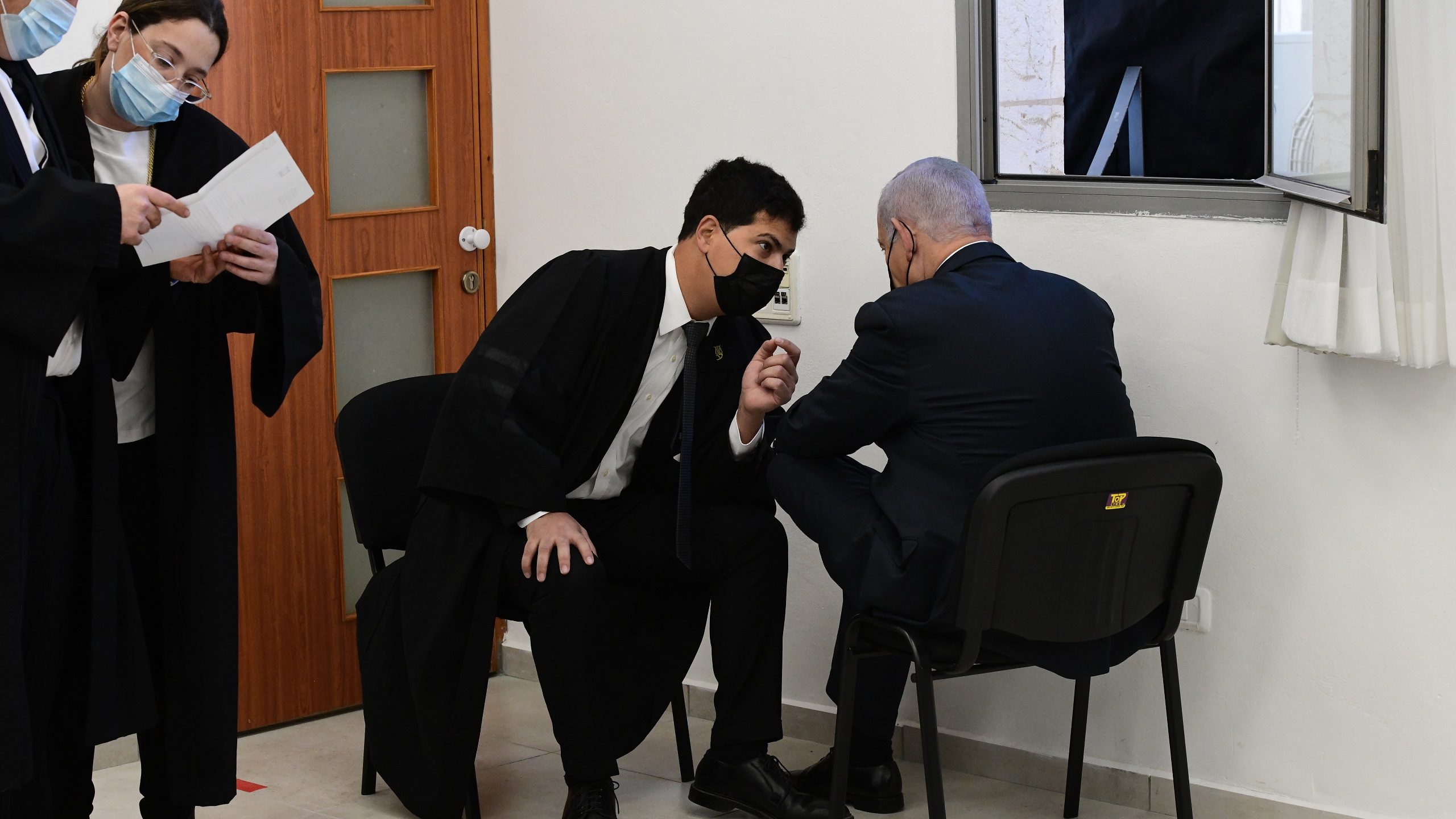Judicial, Political Sagas Fused in Dramatic Israeli Morning
Netanyahu to appear in court while prime minister nominee is decided
Representatives of all of Israel’s parliamentary parties will convene on Monday at the nation’s presidential residence in Jerusalem, where President Reuven Rivlin will hear their recommendations on whom he should task to form the next government and serve as prime minister.
At the same time, only several hundred meters down the road, the nation’s current prime minister will rise from the bench at the capital’s district courthouse as the opening statements in his ongoing corruption trial begin.
Binyamin Netanyahu, indicted for charges of bribery, fraud and breach of trust, was ordered last week by his judges to appear before the court for the start of the trial’s evidentiary phase.
Netanyahu requested to be excused from the first days’ procedure, but his appeal was only partially granted, as the judges agreed to exempt the prime minister just from hearing the first witness, after opening remarks are concluded.
He clearly has an incentive to be there in person when his words or actions are discussed, to look the witness in the eye and instruct his attorneys on what to ask in cross-examination
“[Netanyahu] has conflicting interests here,” former Deputy State Attorney Yehuda Shaffer told The Media Line.
“As a defendant, there’s certainly a significance in his being present. He clearly has an incentive to be there in person when his words or actions are discussed, to look the witness in the eye and instruct his attorneys on what to ask in cross-examination.”
“But as prime minister, from an optics perspective, it’s definitely an inconvenience.”
Shaffer assumes that “when witnesses pertaining more directly to him appear,” the embattled prime minister will consider showing up, adding that Netanyahu’s presence “could benefit the entire trial; it will help get to the truth. It’s in everyone’s interest.”
A few blocks away from the district court, Rivlin will host officials from each of more than a dozen parties elected to parliament in last month’s hotly contested elections.
According to protocol, delegations from each party will confer individually with the president, disclosing to Rivlin who its preferred candidate for prime minister is.
Rivlin will then appoint the individual he concludes has the highest odds of forming a government, awarding the selected candidate one month – with a possible two-week extension – to present his coalition.
To form a government, a party leader is obliged to muster at least a 61-seat majority in Israel’s 120-member parliament.
According to the latest tallies, neither Netanyahu nor his likeliest competitor – Opposition Leader Yair Lapid – will be recommended by parties representing 61 Knesset members, which leaves Rivlin with room to exercise personal judgment as to whom to tab for the job.
There could be new details that may crop up [during the evidentiary phase of Netanyahu’s trial] and make it harder for some politicians to form a government with Netanyahu
“I certainly think there could be new details that may crop up [during the evidentiary phase of Netanyahu’s trial] and make it harder for some politicians to form a government with Netanyahu,” Shaffer says.
“So far, all we know is what the defense and maybe others chose to leak, out of their own interests. With evidence and testimony being heard three days a week, maybe more people will understand that there are severe issues at hand. That could affect the political side.”
After the past four consecutive election rounds of 2019-2020 failed to produce a stable, long-term government, no one in Israel would be surprised if by early May the country is hurled into a fifth cycle.
Netanyahu’s trial is only just beginning nearly five years after investigations first began, and some have warned that the prime minister may attempt to use the nation’s fragile political situation to extract himself from his legal predicament.
With less than a year left for Attorney General Avichai Mandelblit’s term, Netanyahu’s rivals claim any replacement selected by the prime minister would surely attempt to halt or even cancel the trial.
Some argue the prime minister is looking to fire the attorney general before the latter’s tenure is completed and replace him with a more amicable individual.
Prof. Gad Barzilai, a former Faculty of Law dean at the University of Haifa, told The Media Line that Netanyahu would need to “present solid legal grounds for such actions,” adding that any such decision would quickly be appealed in – and overturned by – Israel’s Supreme Court.
That could be a grave threat to democracy
“Anyway, it’s a government decision, and in the current government – and any potential future government I can think of – that won’t possibly pass.”
Shaffer agreed.
“The attorney general can theoretically stop criminal procedures, but I can’t imagine anyone going that far,” he said.
“That could be a grave threat to democracy.”
Early Monday morning, in the nation’s capital, Israel’s tangled legal and political crises will intertwine yet again.
The end, it appears, is nowhere in sight.


